#egyptian language
Explore tagged Tumblr posts
Text
Finished translating an offering scene from Nefertari's tomb, I'm proud of myself 🔥 It was a lot of fun tho and is by far the biggest text I've translated (Im still very new to studying hieroglyphs) But yeah <3




#This is what I do in my freetime#ancient egypt#egyptology#egyptian#hieroglyphs#hieroglyphics#egyptian language#language#linguistics#language stuff#languages#studyblr
7 notes
·
View notes
Text
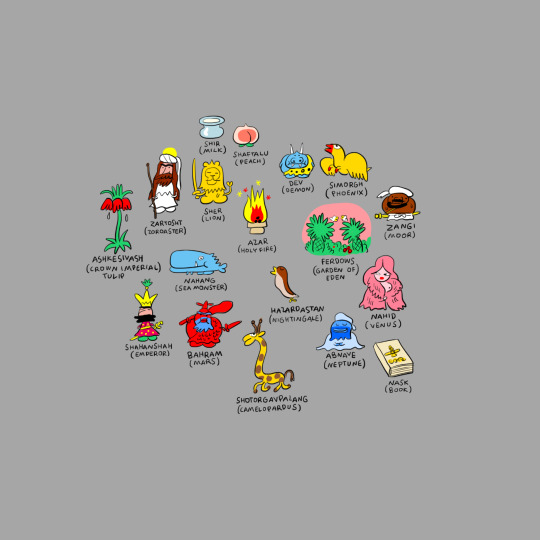
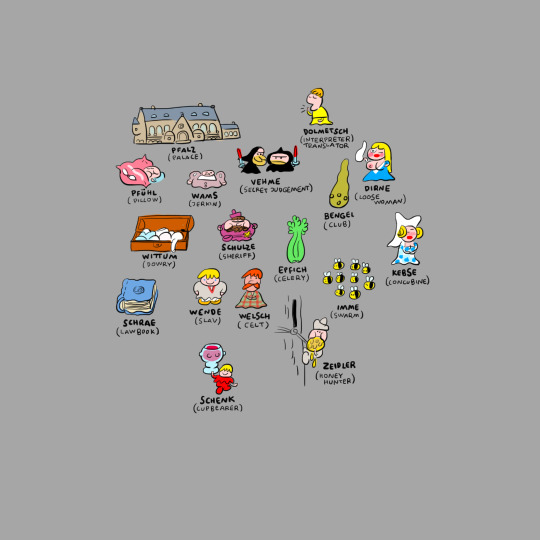
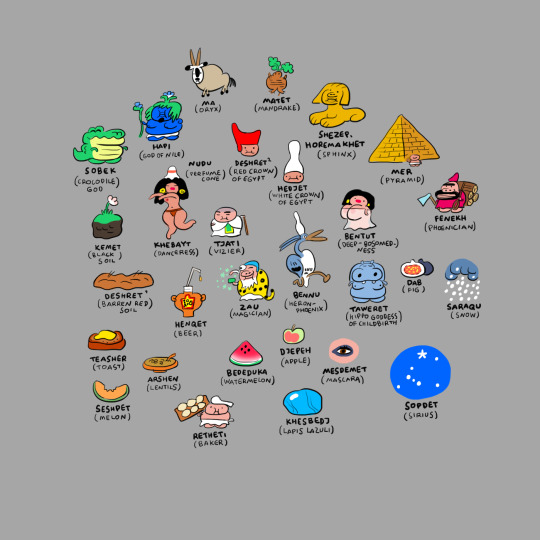
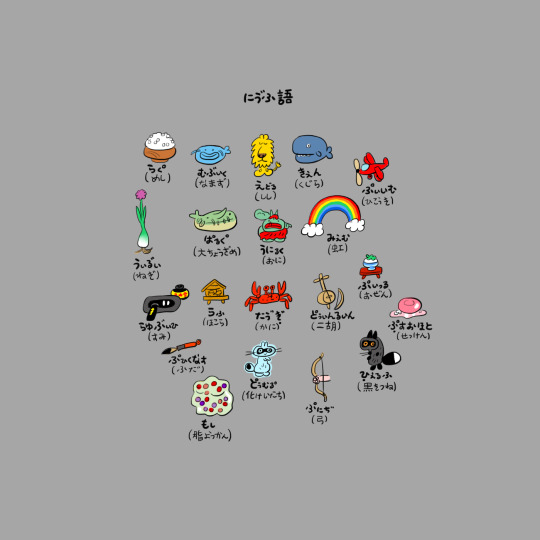
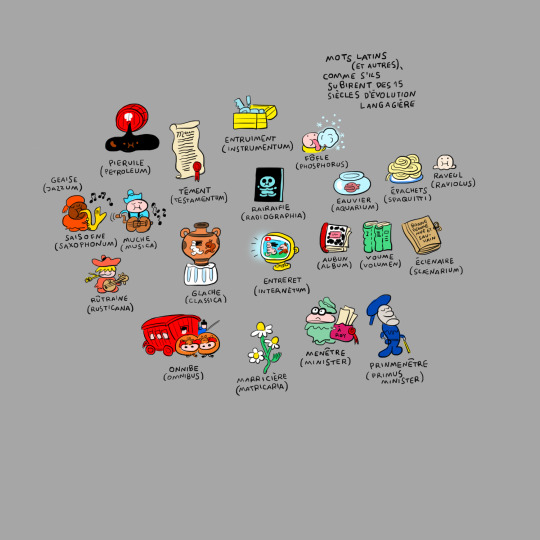
persian - german - egyptian - nivkh - french
#langblr#language#languages#persian language#persia#iran#german language#deutsch#deutschland#egypt#egyptian language#nivkh#nivkhs#france#french language#français
95 notes
·
View notes
Text
and now a bit of linguistic lore:
Sutekh adjusts to linguistic changes the quickest. He seems to pick up colloquialisms and language shifts almost immediately after they spread among the people of Kemet.
Djehuty, on the other hand, DESPISES LANGUAGE SHIFTS with EVERY FIBER OF HIS BEING. During the Battle of Kadesh story, which takes place firmly in the Late Bronze Age, Djehuty is still speaking Middle Egyptian and sounds like an ass.
Suty, on the other hand? The second the Kemetic language shifted toward analytic, he was all over it. Who needs to conjugate a verb when you have a handy preposition to get the job done?
#sutekh#djehuty#papyrusnabayat#bronze gods#headcanon#egyptian mythology#mythological fiction#egyptian language#lore
10 notes
·
View notes
Text
So the Egyptians had a world where the dead go underground (dúwʀat/𓂧𓍯𓏏𓇽) and also a world where the dead go in the sky (masqárit/𓄟𓋴𓈎𓏏𓈉)
#egyptian#egyptian language#ancient egypt#ancient egyptian#words#languages#lingblr#langblr#linguistics#egyptology#heaven#afterworld#underworld#afterlife#sky
14 notes
·
View notes
Text
#coptic#egypt#kemet#ⲭⲏⲙⲓ#archeology#ancient egypt#egyptian#egyptian mythology#pharaonic art#pharaoh#africa#coptic language#languages#ancient languages#art#egyptian language#north africa#coptic art#history#kumat#funny memes
34 notes
·
View notes
Text

Hieroglyphics 📜
—
Hieroglyphics is a writing system invented in Egypt around 5000 years ago.
It is the second oldest form of writing, originating a few hundred years after cuneiform, which uses wedge-shaped characters and was devised by the Sumarians of Mesopotamia.
The Egyptians were once thought to have got the idea of writing from the Sumarians, but their system is now generally believed to have emerged independently, although the details of its origins remain mysterious.
Hieroglyphs take the form of pictures, each representing an entire word, syllable, or phoneme (the units of sound from which spoken language is built).
The Ancient Egyptians referred to these scripts as “the gods’ words,” a phrase translated by the Ancient Greeks as “sacred carvings,” which gives us “hieroglyphics.”
Strictly, the word applies only to the writing on Ancient Egyptian monuments.
However, these days, it is used more loosely to describe other, unrelated, picture-based scripts including those employed by the Hittites in Anatolia, the Minoans in Crete and the Maya of Mesoamerica.
Egyptian hieroglyphs are written in rows and columns.
They are read from top to bottom, and either left to right or right to left – with the heads of the human and animal characters pointing toward the start of the line.
The earliest texts remain largely indecipherable, except for names within them, even though many contain hieroglyphs used in later inscriptions.
However, during the 3rd dynasty (between about 2650 and 2575 BC), hieroglyphics became regularised.
From then, it continued with the same 700 or so signs for more than 2000 years.
https://www.newscientist.com/definition/hieroglyphics/
#hieroglyphics#Ancient Egypt#hieroglyphs#sacred words#Egyptian hieroglyphs#writing system#Egyptian language#ancient civilization#culture#history
4 notes
·
View notes
Text

#yugioh#ygo#manga#out of context#it kills me every time they do the translation annotation and say the original language is “ancient egyptian”#bruh that is not the name of the language they spoke#pharaoh atem#thief king bakura
75 notes
·
View notes
Text
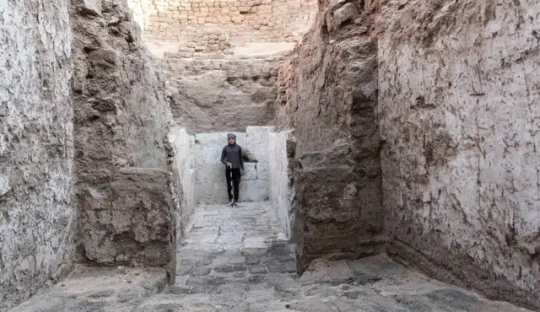
Royal Tomb, Greek-Language Writings Among Latest Discoveries in Egypt
Archaeologists have recently shed more light on what life was like thousands of years ago at Egypt’s Sohag province thanks to spectacular new findings spanning from 1700BC to the Byzantine era.
The Egyptian-American Archeological Mission of the University of Pennsylvania discovered a royal tomb in Abydos, while the Egyptian Archeological Commission of the Supreme Archaeological Council unearthed a complete Roman-era pottery workshop and 7th-century cemetery in the village of Benawit.
Among the findings is a collection of ostraca –potsherds used as a writing surface- with Greek-language writings on them.
Ancient Egyptian tomb discovery exposes Abydos kings Dynasty
The new royal tomb at Abydos was excavated at a depth of approximately 7 meters below ground level. It consists of a limestone burial chamber covered by mudbrick vaults that originally reached a height of approximately 5 meters.
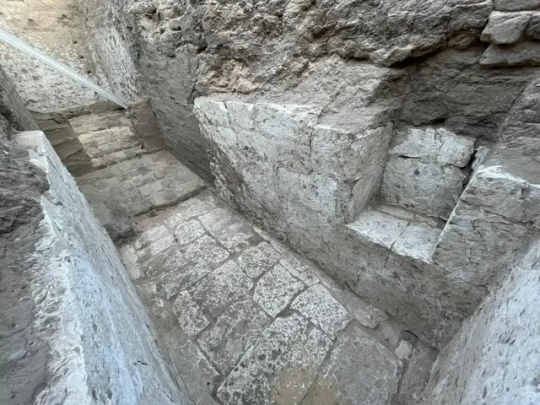
Remains of inscriptions are found on either side of the entrance leading to the burial chamber of the goddesses Isis and Nephthys, along with yellow inscription bands that once bore the king’s name in hieroglyphs, according to Dr. Joseph Wagner, head of the mission.
Althought the name of the owner of the tomb has not been identified yet, Professor Mohamed Abdel Badie, head of the Egyptian Antiquities Sector at the Council, believes that it belonged to the kings previous to King Senebkay, whose tomb was discovered in Abydos by the mission in 2014.
He added that the newly discovered tomb is much larger than other previously known tombs attributed to the Abydos Dynasty, a series of kings who ruled Upper Egypt between 1700 and 1600 BC.
The discovery is expected to provide fresh scientific evidence on the development of royal tombs in the Mount Anubis necropolis and the kings of the Abydos Dynasty, offering a deeper understanding of the complex political history of Egypt’s Second Intermediate Period, according to Dr. Mohamed Ismail Khaled, Secretary General of Egypt’s Supreme Council of Archaeology.
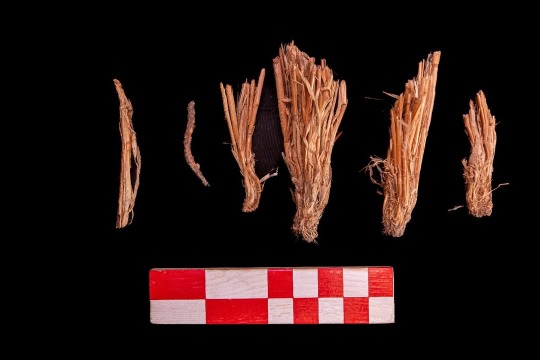
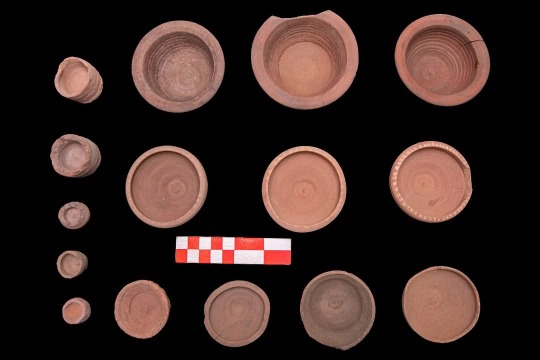
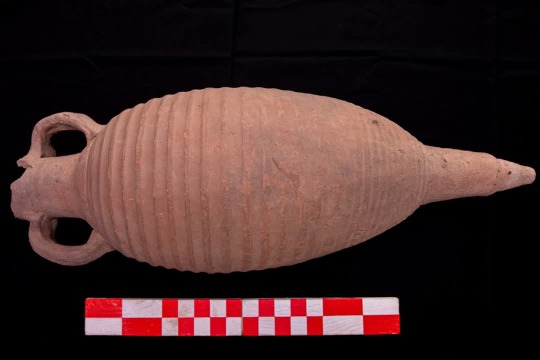
Further research and study will be looking to determine the exact date of the tomb’s construction.
Site of the oldest decorated royal tomb in ancient Egypt
The Mount Anubis necropolis is considered one of the most important ones in the Abydos area.
It is a royal necropolis, and the mountain itself takes the shape of a pyramid.
King Senusret III (1874-1855 BC) chose the site to build his massive tomb beneath the natural pyramidal summit, a first in Egyptian civilization.
It was also chosen by a number of kings of the Thirteenth Dynasty, and later by the kings of the Abydos Dynasty, who built their tombs deep in the desert near the mountain.
The most famous of these is the tomb of King Senebkay, which is considered the oldest decorated royal tomb in ancient Egypt.
Roman-era pottery workshop discovered in Egypt
Also at Egypt’s Sohag province, where Abydos is located, a large pottery workshop of the Roman era and a 7th-century cemetery were discovered near the village of Banawit.
The site is believed to have been part of an industrial unit that supplied the region with pottery and glass. It includes a large group of kilns and extensive warehouses for storing vessels.
Among the discoveries is a group of 32 ostraca -pottery fragments with writings on them- featuring Demotic and Greek-language scripts.
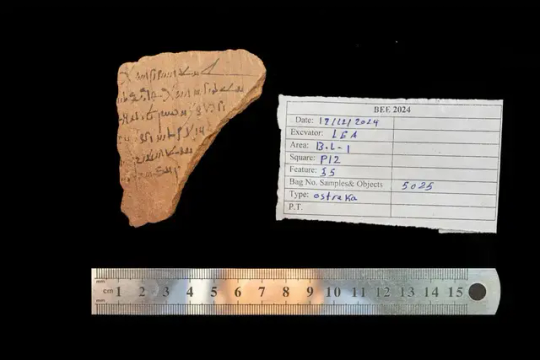
The data was detailing commercial transactions at the time and the method of paying taxes.
Professor Mohamed Abdel Badie said that preliminary studies and evidence indicate that this site was used during the Byzantine era and was reused as a cemetery in the seventh century AD, possibly extending into the fourteenth century AD.
A number of burials were found at the site, including mudbrick tombs containing skeletons and mummies, likely representing family graves for men and women, the majority of whom were children.
Perhaps the most haunting burial discovery of the mission was the mummy of a child wearing a colorful fabric cap.
By Paula Tsoni.
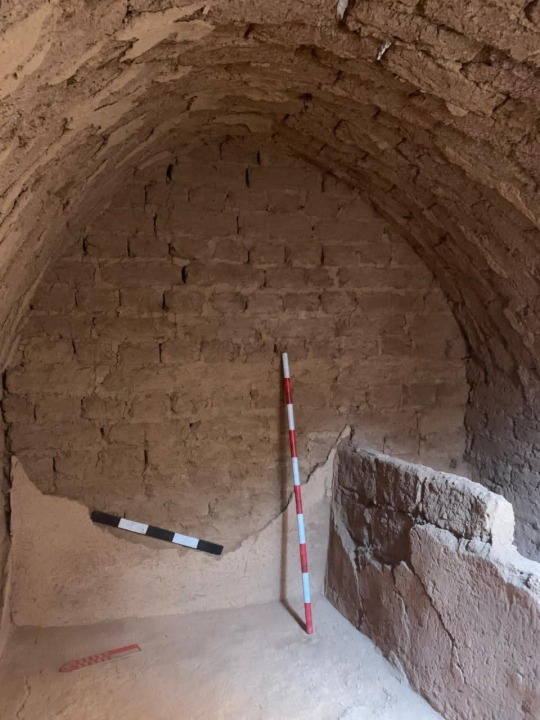
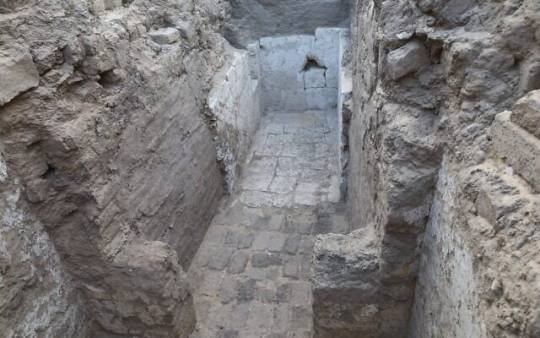
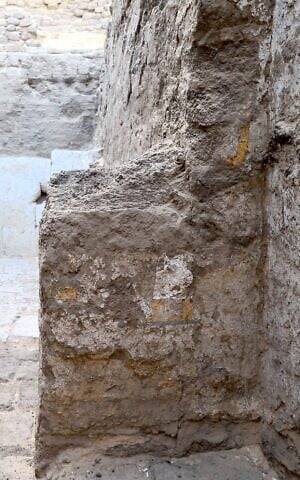

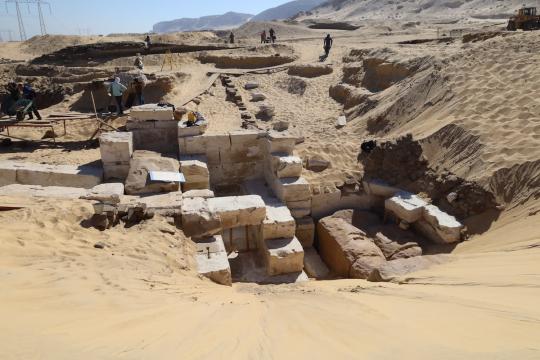
#Royal Tomb Greek-Language Writings Among Latest Discoveries in Egypt#abydos#royal tomb#ancient tomb#ancient grave#grave goods#ancient artifacts#archeology#history#history news#ancient history#ancient culture#ancient civilizations#ancient egypt#egyptian history#egyptian pharaoh
38 notes
·
View notes
Note
hi, sorry in advance if this is already somewhere else on the blog, but how do we pronounce the RO names? or the character names in general
Narmer and Tabiry is quite straightforward I think and Qenna I assume is pronounced with a hard K sound, but is Zaia pronounced with the first syllable rhyming with lie or lay? (I anssime it’s the former and spoken in two syllables, but I guess it could be said in three syllables??)
and is the “e” in Ahmose pronounced as another syllable (making the total in his name three syllables)? Im guessing petmes is either peetmees or petmees or peetmes but idk lol so it’d be nice if you could clarify it :]
thanks!
I made a post once upon a time of how I pronounce the names. You can find it at the end of the ROs and NPCs link in the main post, but here it is again: link
The way I pronounce Petmes rhymes with the word 'endless'. The vowels are the same so it's like an 'eh' sound, both times.
Zaia is zaah-yaah, and Ahmose is tricky because Ahmose isn't even the original name. The original Egyptian name was something close to Yahmes (similar to Petmes, where 'mes' means child, and 'Yah' was the moon god, so Yahmes means Child of the Moon). The 'Ahmose' spelling probably comes from Greek, and the English translations just adopted it. Is the 'e' pronounced at the end? Who knows? Hieroglyphs didn't include vowels most of the time. I pronounce it as 'eh', but it could also be silent.
Interesting tidbits about the language and pronunciations under the cut if you wanna read further:
The thing is, we don't know how these words were pronounced. The original language completely died out more than two thousand years ago and they didn't write vowels in hieroglyphs, so when linguists try to imitate the pronunciation, that's just guesswork based on Coptic and other languages that came later and evolved from Ancient Egyptian.
The pronunciation and words changed a lot as well during the thousands of years when the language was in active use, just like how our own languages sound completely different from even 500 years ago.
Old Kingdom Egyptian was probably quite different from New Kingdom Egyptian because there was a thousand years between the two historic periods.
In the game, the characters use late-Middle Kingdom Egyptian, which was probably heavily influenced by Hyksos after the Second Intermediate period, when the Hyksos occupation took place. After the Hyksos were banished (around 1500 BC), it is possible that a linguistic reform took place to erase the Hyksos traces from the language, because pharaohs always loved to erase traces of the past they didn't like, which we have proof of. They constantly re-carved the texts on monuments to get rid of the evidence that the offending thing (or person) even existed. It is noticeable even today on the walls of temples and other monuments.
If Narmer was a real person, he would 100% do that. So the language they use in the game is already not exactly the same that people would have spoken even 50 or 100 years before. It is practically impossible to say what it was like.
And then later, that mix of a language evolved into New Kingdom Egyptian, which was in use for another good 500 years.
New Kingdom Egyptian evolved into Demotic Egyptian from around the 26th Dynasty (around 1000 BC).
Cleopatra VII (the famous one) was from what could be considered the 33rd Dynasty, so when she was alive (around 50 BC), people hadn't been using New Kingdom Egyptian for almost a thousand years. They spoke the then-newest version of Demotic Egyptian, which was heavily influenced by Greek and Aramaic, so it was not the same as the older versions.
By 200 CE, Demotic evolved into Coptic Egyptian, and Coptic became the language that people in Egypt spoke during the last few centuries before the Arabic conquest (around 600 CE). By that time, they adopted the Greek alphabet for writing. In some old Christian monasteries in Egypt, they still have songs and old texts that are sung in Coptic, but nobody actively uses the language anymore.
Thousands of years later, filtered through millions of people's different accents and pronunciations, we simply can't know what the old languages were like. The only way to know would be to invent a time machine.
If you wanna know what Bohairic Coptic sounds like (that's the latest version of the Coptic language), here is a cool video I found on youtube:
youtube
30 notes
·
View notes
Text
Exodus 2:10 And the child grew, and she brought him to Pharaoh’s daughter, and he became her son. So she called his name Moses, saying, “Because I drew him out of the water.”
𓈗𓅭
mw zꜣ
/maw siːʔ/
water child
30 notes
·
View notes
Text
stop making Atem use habibi in fics as a term of endearment that boy is ANCIENT egyptian why on earth would he know modern day arabic ??
and this isn’t something I’ve seen in AUs no I’ve seen this in canon compliant fics.
#Like ik pet names in other languages are cute but#use ancient egyptian ones instead#it makes me truly go insane#yugioh#yugi mutou#puzzleshipping#yami yugi#atem#ygo#pharaoh atem#prideshipping
71 notes
·
View notes
Text
sutekh: you really butchered ptah’s beautiful hieroglyphs, huh
djehuty: *writing cursive hieroglyphic* listen, you little brat, i cannot take forever to write this
sutekh: oh my goodness you made them even more unreadable
djehuty: *writing in hieratic* shush, i need to record faster than the form allows me, people speak quickly, all right?
sutekh: djehuty
djehuty: what
sutekh: what are those
djehuty: *writing in demotic* i do not want to hear a single word from you, sutekh
sutekh: those are squiggles
sutekh: they are UNREADABLE
djehuty: do you have a better suggestion?
sutekh: well, the copts seem to like this writing system they borrowed from the hellens—
djehuty: NO
djehuty: NEVER
#bronze gods#sutekh#djehuty#dialogue#egyptian history#egyptian language#egyptian linguistics#lore#djehuty has the worst doctor handwriting#how does nabu even read this#egyptian-mythology
7 notes
·
View notes
Text
An interesting thing about ancient Egyptian words for colour is that they grouped light blue with green rather than with blue. That is, it was considered a shade of green (wꜣd̠), not of blue (χsbd̠).
#egyptian#ancient egypt#ancient egyptian#egyptology#egyptian language#languages#langblr#lingblr#colour#colours#colors#color#light blue#cyan#blue#green
7 notes
·
View notes
Text

Ancient Egyptian insults have me laughing my ass off. I’m so using these.
#endo safe#ancient history#ancient egyptian#ancient egypt#language#languages#ancient languages#insults#fictive blog#introject blog#introject#fictive#history#history memes
257 notes
·
View notes
Text



Two languages of Egypt desings! No they are not the same person
Edit: I accidentally posted this on main instead of my oc account @languages-i-guess-comic ... oops. Anyway do check it out lmao!
18 notes
·
View notes

